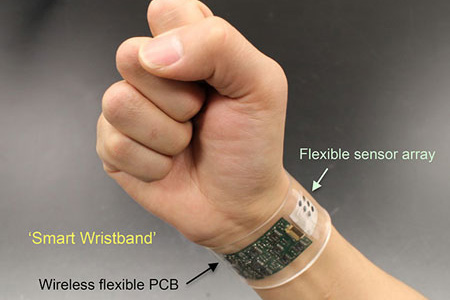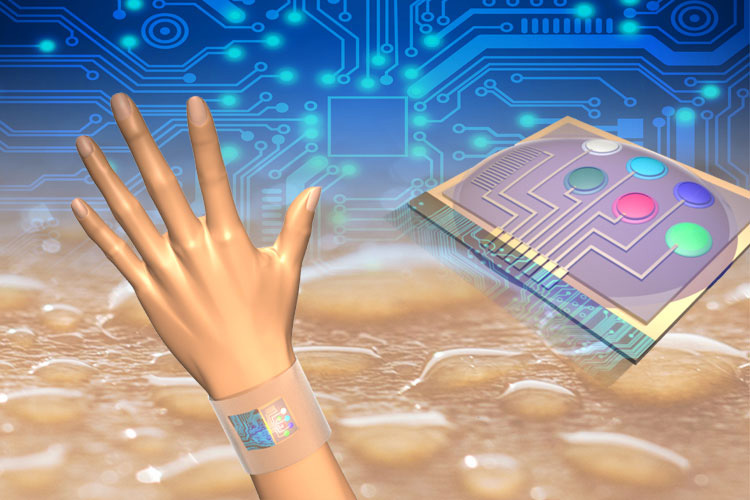The sensor is the work of a UC Berkeley team, and it’s said to be the first of its kind in the world. It examines sweat for sodium, potassium, lactate, and glucose levels, ready to return instant feedback to a smartphone linked to it by Bluetooth. UC Berkeley professor George Brooks said said these metabolites and electrolytes are, “vitally important for the health and well-being of an individual.”
Tests using the sensor have been carried out already, on people exercising indoors and out, and at different levels of intensity. The device, which consists of five different sensors mounted on a flexible circuit board, took the form of a rudimentary wristband or headband, and although it’s a bit too large for commercial use at the moment, that’s easily changed according to the team. Shrinking the device won’t affect functionality either, and it’s possible to increase the different biochemicals measured by it.
Much of the data collected by the device would previously only have been learned by taking a blood sample, and sending it to a laboratory before finding out the results. This real-time aspect makes it especially important for monitoring individuals who may be under considerable physical pressure — such as the aforementioned athletes and astronauts. For regular people, having instant access to informative medical data is becoming more important, as healthcare looks towards mobile and wearables for assistance with diagnosing ailments; and the more comprehensive that data is, the quicker and more accurate the resulting diagnosis should be.





